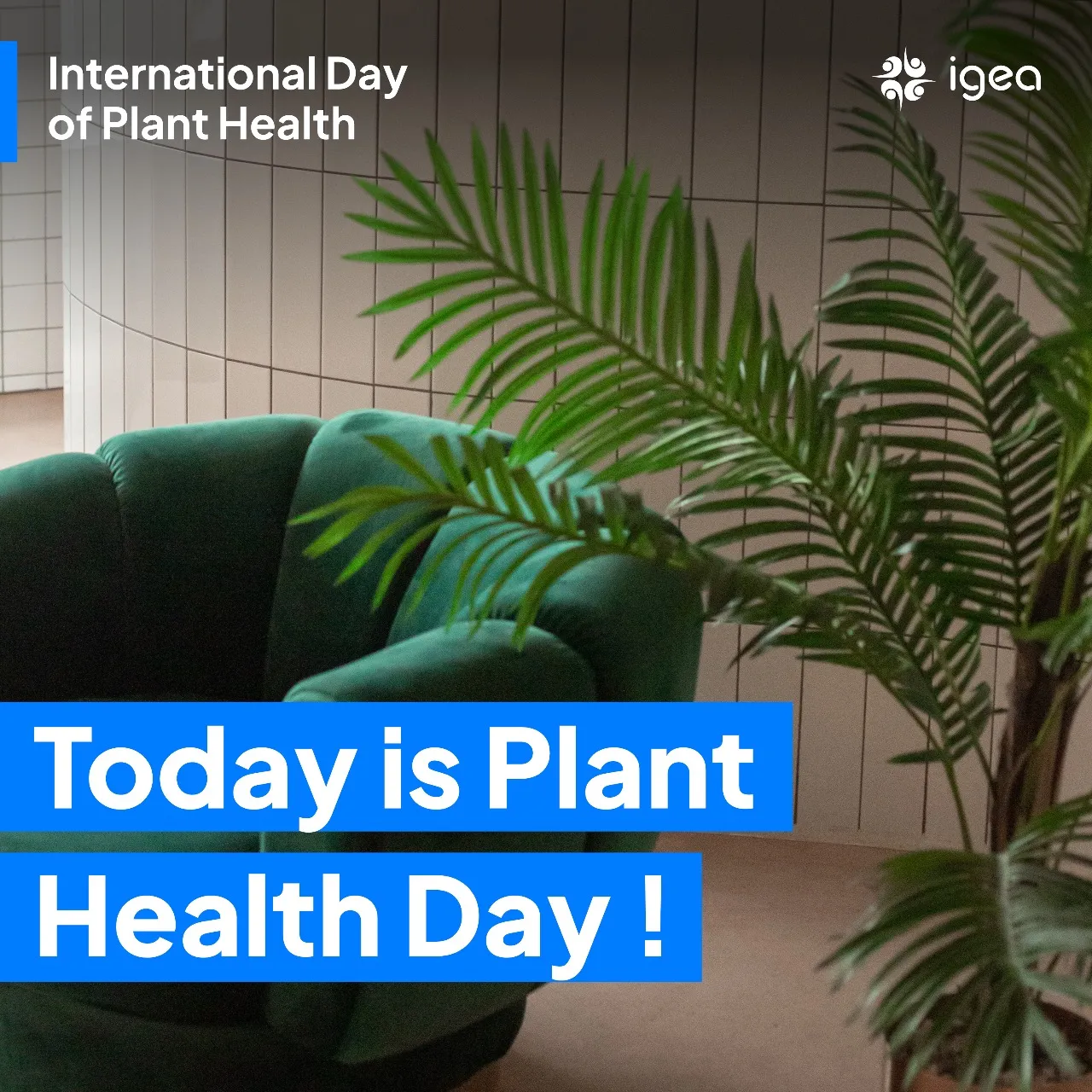+90 224 504 28 12 (TR)
Üçevler Mahallesi İzmir Yolu Cadde No:241/C Blok Westpoint D:32 Nilüfer, Bursa, 16120

Hello, dear readers! Today is a very special day for all of us who love and appreciate the green wonders of nature: plants! Yes, you heard right, today is the International Day of Plant Health, a global celebration of the vital role that plants play in our lives and our planet.
But what exactly is plant health and why is it so important?
Well, plant health is the state of well-being of plants and their ability to grow, reproduce and resist pests and diseases. Healthy plants are essential for food security, biodiversity, environmental protection and economic development. Did you know that plants produce 98% of the oxygen we breathe and 80% of the food we eat? Without plants, we would not survive!
However, plants are under constant threat from various factors, such as climate change, invasive species, pollution and human activities. According to the Food and Agriculture Organization (FAO), up to 40% of global food crops are lost annually due to plant pests and diseases. This not only affects food production and availability, but also causes significant economic losses and environmental damage.
That's why we need to take action to protect plant health and prevent the spread of harmful pests and diseases. How can we do that? Well, there are many ways we can contribute to plant health, both individually and collectively.
Here are some examples:
Follow the phytosanitary regulations and guidelines when traveling or trading plants or plant products. This means checking if you need a permit or a certificate to bring plants across borders, and avoiding bringing prohibited or restricted items that could carry pests or diseases.
Choose local and organic plants and plant products whenever possible. This helps support local farmers and reduce the environmental impact of transportation and pesticides.
Plant native species in your garden or balcony. Native plants are adapted to the local climate and soil conditions, and provide habitat and food for native wildlife. They also require less water and maintenance than exotic plants.
Avoid introducing invasive plants or releasing unwanted plants into the natural environment. Invasive plants can outcompete native plants and disrupt the ecological balance. If you have unwanted plants, dispose of them properly in a sealed bag or container.
Monitor your plants regularly for signs of pests or diseases. If you notice any symptoms, such as discoloration, spots, holes, wilting or deformation, report them to your local plant health authority or extension service. They can help you identify the problem and advise you on how to treat it.
Practice good plant hygiene. This means cleaning your tools, pots, shoes and clothes after working with plants, especially if you move from one area to another. This helps prevent the transfer of pests or diseases from one plant to another.
Educate yourself and others about plant health. Learn more about the benefits of plants and the threats they face. Share your knowledge and passion with your family, friends, neighbors and community. Join or organize events and activities to raise awareness and promote plant health.
As you can see, plant health is not only a matter of science or policy, but also a matter of culture and lifestyle. We all depend on plants for our well-being, and plants depend on us for their protection. By celebrating the International Day of Plant Health, we can show our gratitude and respect for these amazing living beings that make our world a better place. Happy International Day of Plant Health!